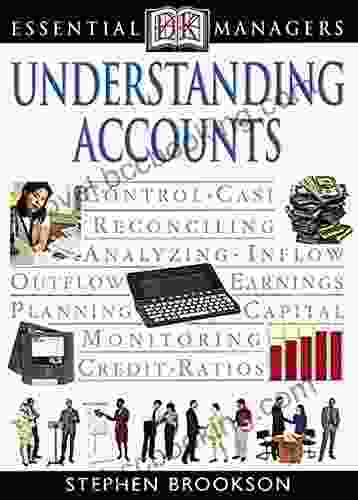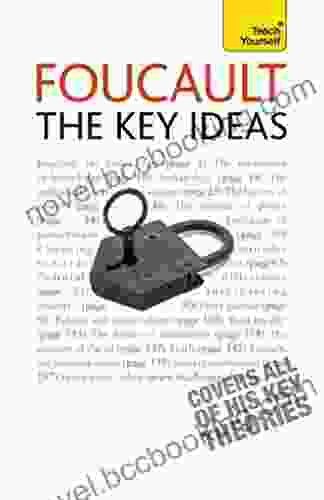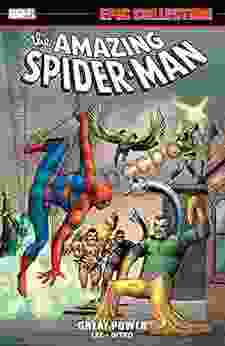Foucault: The Key Ideas

Michel Foucault, a French philosopher and historian, is renowned for his groundbreaking contributions to the fields of critical theory, history, and power analysis. His work has had a profound impact on our understanding of social and political phenomena, and his key ideas continue to resonate in contemporary thought.
This comprehensive guide aims to unravel the complexities of Foucault's thought and provide a clear understanding of his most influential concepts. We will explore the core themes of his research, including power relations, the construction of knowledge, and the formation of subjectivity. Through a detailed examination of his key works, we will gain insights into Foucault's innovative approach to understanding the human condition and its implications for our contemporary world.
4 out of 5
| Language | : | English |
| File size | : | 506 KB |
| Text-to-Speech | : | Enabled |
| Screen Reader | : | Supported |
| Enhanced typesetting | : | Enabled |
| Word Wise | : | Enabled |
| Print length | : | 193 pages |
Power and Knowledge
Foucault's seminal work on power and knowledge challenges the traditional view of power as a repressive force exercised by the state or dominant groups. Instead, he argues that power is a productive and pervasive force that operates through a network of social practices and institutions.
For Foucault, power is not held by a singular entity but is instead dispersed throughout society, shaping our thoughts, actions, and identities. He asserts that knowledge is not neutral or objective but is produced and circulated in ways that serve the interests of those in power. By controlling the production and dissemination of knowledge, dominant groups can maintain and legitimize their authority.
In his work "Discipline and Punish," Foucault examines the rise of modern disciplinary societies, characterized by the use of surveillance, normalization, and self-control to regulate and discipline individuals. He argues that these disciplinary practices not only enforce conformity but also produce docile and self-regulating subjects who internalize the values and norms of power.
Discourse and Subjectivity
Foucault's theory of discourse holds that language is not merely a neutral medium for communication but is a powerful force that shapes our understanding of the world and our place within it. He argues that discourse is not simply a collection of words but a system of knowledge, beliefs, and practices that produce and circulate meaning.
Individuals are positioned within and shaped by these discursive formations, which define what is considered true, normal, and desirable. Foucault's concept of discourse analysis seeks to uncover the hidden assumptions and power relations embedded in language, revealing the ways in which discourse constructs and limits our understanding of reality.
Through his exploration of discourse, Foucault developed a distinctive theory of subjectivity. He argues that our identities are not fixed or essential but are rather constructed through the discourses and practices that shape our lives. Subjectivity, according to Foucault, is a fluid and contested terrain, perpetually being molded by the power relations that surround us.
Genealogy and Biopolitics
Foucault's groundbreaking work on genealogy offers a critical perspective on the history of knowledge and power. He challenges the traditional view of history as a linear progression of events and instead emphasizes the contingent and contested nature of historical truth.
Through meticulous research and analysis, Foucault traces the emergence of modern institutions, practices, and discourses, revealing the hidden power relations and struggles that have shaped their development. His genealogical inquiries shed light on the complex and often contradictory forces that have given rise to our contemporary social and political landscape.
Foucault's later work delves into the concept of biopolitics, which examines the ways in which power operates through the management and control of populations and their bodies. He argues that modern states increasingly focus on regulating and optimizing the lives of their citizens, extending their power from political and legal realms into the realm of the biological. Foucault's theories on biopolitics have significant implications for our understanding of contemporary issues such as public health, surveillance, and the commodification of the body.
Madness and the Clinic
Foucault's work on madness and the clinic provides a critical analysis of the ways in which society defines and treats mental illness. In his seminal work "Madness and Civilization," he argues that the concept of madness is historically and culturally constructed, and that it has been used to exclude, control, and dehumanize those who deviate from societal norms.
Foucault examines the development of psychiatric institutions and practices, tracing their evolution from asylums to modern mental health clinics. He argues that the clinic plays a crucial role in perpetuating and legitimizing the medicalization of madness, while also providing a means of social control and containment.
Implications for Contemporary Thought
Foucault's ideas have had a profound impact on a wide range of disciplines, including sociology, cultural studies, and political theory. His work has inspired scholars to critically examine the power relations embedded in social institutions, discourse, and everyday practices.
Foucault's legacy continues to shape contemporary thought and activism. His insights into power dynamics have helped us understand and challenge oppressive structures, while his theories on subjectivity and discourse have empowered individuals to reclaim agency and forge new identities. From critical race theory to feminist studies, Foucault's work remains a vital resource for scholars seeking to expose and resist social injustice.
Michel Foucault's groundbreaking ideas have revolutionized our understanding of power, knowledge, and subjectivity. His work has challenged traditional notions of history, truth, and the individual, providing us with a powerful framework for analyzing and critiquing the social and political landscape.
Through his meticulous research and innovative theories, Foucault has left an indelible mark on contemporary thought and activism. His insights continue to resonate, empowering us to critically interrogate the world around us and to strive for a more just and equitable society. As we navigate the complexities of the 21st century, Foucault's work remains an indispensable guide, challenging us to question our assumptions and to forge a path toward a more enlightened and liberated world.
4 out of 5
| Language | : | English |
| File size | : | 506 KB |
| Text-to-Speech | : | Enabled |
| Screen Reader | : | Supported |
| Enhanced typesetting | : | Enabled |
| Word Wise | : | Enabled |
| Print length | : | 193 pages |
Do you want to contribute by writing guest posts on this blog?
Please contact us and send us a resume of previous articles that you have written.
 Book
Book Novel
Novel Page
Page Chapter
Chapter Text
Text Story
Story Genre
Genre Reader
Reader Library
Library Paperback
Paperback E-book
E-book Magazine
Magazine Newspaper
Newspaper Paragraph
Paragraph Sentence
Sentence Bookmark
Bookmark Shelf
Shelf Glossary
Glossary Bibliography
Bibliography Foreword
Foreword Preface
Preface Synopsis
Synopsis Annotation
Annotation Footnote
Footnote Manuscript
Manuscript Scroll
Scroll Codex
Codex Tome
Tome Bestseller
Bestseller Classics
Classics Library card
Library card Narrative
Narrative Biography
Biography Autobiography
Autobiography Memoir
Memoir Reference
Reference Encyclopedia
Encyclopedia Sarah Fabiny
Sarah Fabiny Julia Indichova
Julia Indichova Vaughn Roste
Vaughn Roste Stefan Burban
Stefan Burban Rod Zandonadi
Rod Zandonadi Rick Revelle
Rick Revelle Sidney Dekker
Sidney Dekker Robert Newman
Robert Newman Richard W Hamming
Richard W Hamming Rita Lorraine Hubbard
Rita Lorraine Hubbard Randy Russell
Randy Russell Satyajit Das
Satyajit Das Sterling Seagrave
Sterling Seagrave Yoshiko Utamine
Yoshiko Utamine Richard Dawkins
Richard Dawkins Robert De Graaf
Robert De Graaf Thomas Gilovich
Thomas Gilovich Rochelle Ismail
Rochelle Ismail Richard J Kahn
Richard J Kahn Sam Hendricks
Sam Hendricks
Light bulbAdvertise smarter! Our strategic ad space ensures maximum exposure. Reserve your spot today!
 Ronald SimmonsFollow ·9.6k
Ronald SimmonsFollow ·9.6k Donald WardFollow ·18.6k
Donald WardFollow ·18.6k Caleb CarterFollow ·7.7k
Caleb CarterFollow ·7.7k Devin RossFollow ·12.7k
Devin RossFollow ·12.7k Jacob FosterFollow ·12.5k
Jacob FosterFollow ·12.5k George MartinFollow ·10.3k
George MartinFollow ·10.3k Cooper BellFollow ·5.8k
Cooper BellFollow ·5.8k Chris ColemanFollow ·13.5k
Chris ColemanFollow ·13.5k

 Steven Hayes
Steven HayesEmbark on Unforgettable Adventures: Discover the Best of...
Unveiling the Enchanting Trails of the...

 Jarrett Blair
Jarrett BlairMaster the Road: Ace Your North Carolina Driver's Test...
Unlock the Secrets to...

 Brent Foster
Brent FosterDk Essential Managers Understanding Accounts: Your...
In today's...

 Isaac Mitchell
Isaac MitchellPrognosis: A Memoir of My Brain - A Journey of Hope and...
In 2013, Eve Ensler was diagnosed with a...
4 out of 5
| Language | : | English |
| File size | : | 506 KB |
| Text-to-Speech | : | Enabled |
| Screen Reader | : | Supported |
| Enhanced typesetting | : | Enabled |
| Word Wise | : | Enabled |
| Print length | : | 193 pages |
















